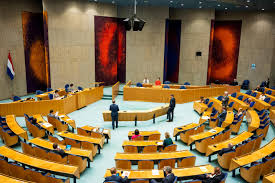VVD: Agree to conditions, otherwise no money – The Hague – ,, I grant the countries autonomy in practice. Now it only exists on paper. We must not waste time in discussions. The problems lie mainly in politics. The residents are not concerned with autonomy. ” In his final conclusion last night, State Secretary Raymond Knops said he “felt a unity in the will to get out” in the House of Representatives. He believes that facts and fiction are too much mixed up in this discussion on the islands. If the reforms are implemented, there will be plenty of opportunities for the countries and there is prospect of real autonomy, he predicted. It was a somewhat curious debate yesterday in the committee for Kingdom Relations of the House of Representatives. It was about a bill that is not yet in place, the Caribbean Reform Entity Act (CHE). If one thing became clear, it is that no one in The Hague wants to govern the autonomous countries of Curaçao, Aruba and Sint Maarten, but wants to help people. Secretary of State Knops cast the suggestion that is often circulating that the Netherlands wants to re-colonize the islands. “Don’t add that every time,” he sighed. The minister wants to talk about aid for the countries, with aid to people in need and the necessary reforms linked to it. The CDA minister has been saying that since the start of the corona pandemic, but that message is not getting through. It clearly disturbs him that the discussion on the islands is almost exclusively about limiting autonomy, while according to him it should be about the best way to offer a future perspective to the people. Sometimes the debate got a bit emotional. VVD Member of Parliament André Bosman lashed out at politics in the Caribbean. “Politicians are only busy with themselves,” he said, referring, among other things, to the recent salary increase for the ministers of Curaçao. Knops assured him that this is not “necessary” for the Netherlands, as was said. “That is total nonsense. I would like to see that corrected. ” In terms of content, Bosman’s contribution was not surprising. He denounced favoring friends and family through politics, self-enrichment, dereliction of duty, and bad and even corrupt tax collection. “There is 4.5 billion guilders in tax money on the street in Curaçao. One billion of which is due. If you belong to the friends and family you do not have to pay. If that money is collected, help is not even necessary. ” Bosman and others said they have “zero ambition” to take over the autonomy of the countries. People need to be helped, but as far as Bosman is concerned, that is only possible if politicians agree to the conditions set by Knops. “And otherwise there is no money from the Netherlands.” According to the MP of the largest government party, Prime Minister Mark Rutte’s party. SP MP Ronald van Raak also spoke out loud in his familiar way. He talked about a diabolical trinity of the underworld, consultants and politicians. A small clique that let the poor “stray”. That is why the Netherlands can only offer help if there are guarantees that it will reach the people who need it. And requirements are necessary for that. “Hold on”, Van Raak told Knops. Other MPs took a slightly milder stance. Antje Diertens (D66), Nevin Özütok (GroenLinks) and Attje Kuiken (PvdA) each emphasized in different terms that countries should not be forced with their backs to the wall to agree to a consensus kingdom law that does not come about according to democratic rules. It now seems too much of a one-way street and the unilateral imposition of conditions. “It is a weakness that we are not familiar with the Kingdom Act, but we must sign it”, says Kuiken. The three parties also want more influence from the countries in the CHE, for example in the appointment of the members. “I have the impression that relations are souring,” said Özütok. “How do we keep the dialogue going?” The three spokespersons would like to consult the Council of State (RvS) at an early stage for advice on the proposals. “Think of it as an independent mediator”, Kuiken told MP Chris van Dam (CDA), who is afraid that the RvS will become a kind of negotiating partner. Knops believes that there will be sufficient opportunities to amend the Kingdom Act if necessary after the Council of State has received the bill, which is not yet in place. At Kuiken’s insistence, he indicated somewhat cautiously that if the advice of the Council of State leads to adjustments, the parliaments could also be discussed again. “If the Reich Council of Ministers considers it necessary.”
To a question from Van Dam, Knops said that it is possible to establish separate consensus kingdom laws per country. That was not the intention, but as progress is very different, that is an option. The CHE has been “constructively” talked about with Aruba all summer, with Curaçao now and not at all with Sint Maarten. At least not about the Kingdom Act and the CHE, says Knops. The State Secretary wants to act as quickly as possible. “We cannot talk endlessly. We should not get stuck in discussions about autonomy, because help is needed now. ” Nevertheless, he expects that it will take “weeks” before an agreement is reached with Aruba and Curaçao, after which the bill can go into further process. As regards content, Knops did not want to say anything about the conversations, although he did make it clear that some adjustments had already been discussed. He also assured the House that when the CHE is staffed, account is taken of “affinity and knowledge and skills” with and about the Caribbean countries. “The members will not be appointed on behalf of the countries, but it is very important to me that they are recognizable to the people there.”

https://antilliaansdagblad.com/curacao/22251-autonomie-nu-alleen-op-papier
